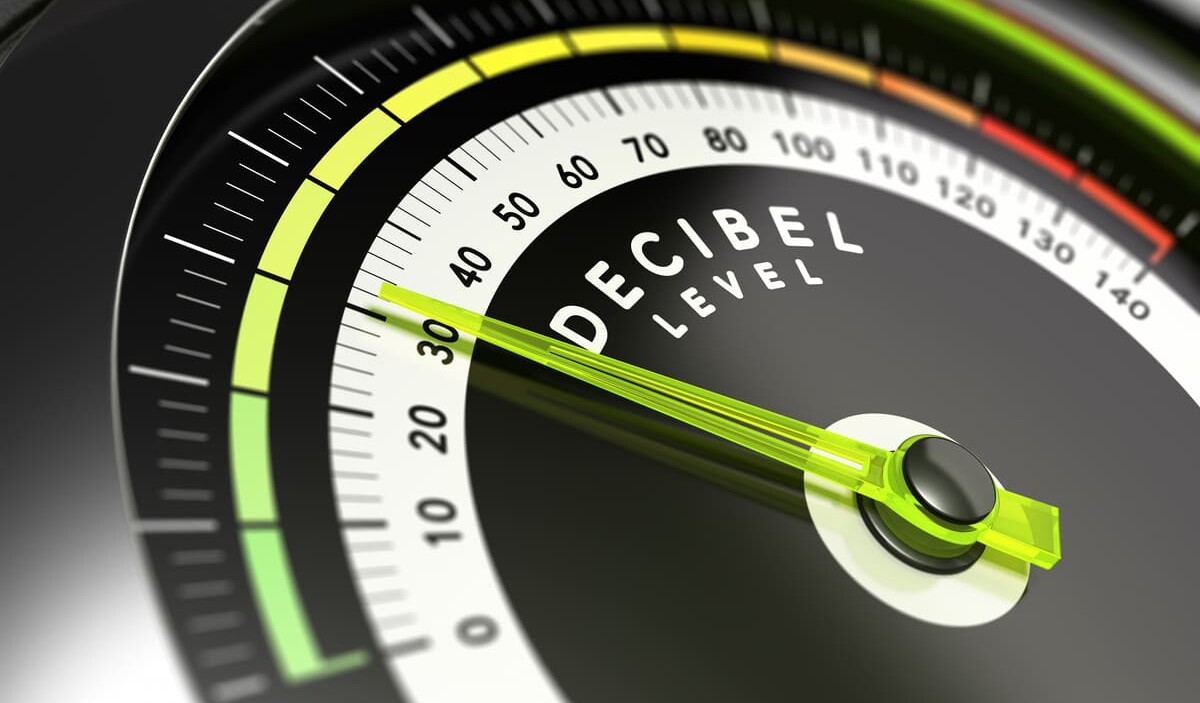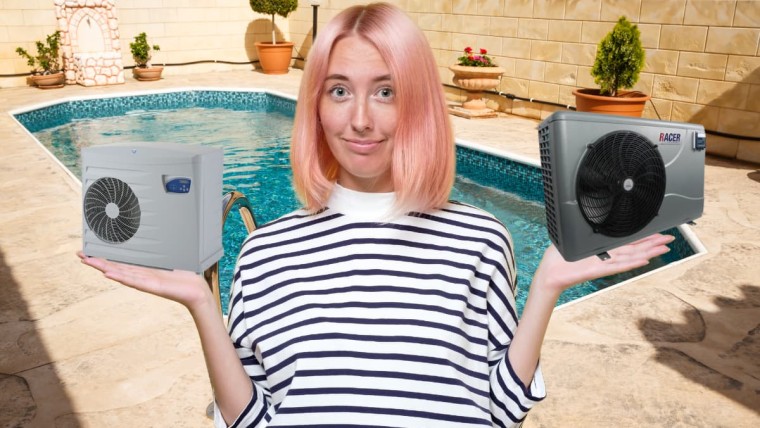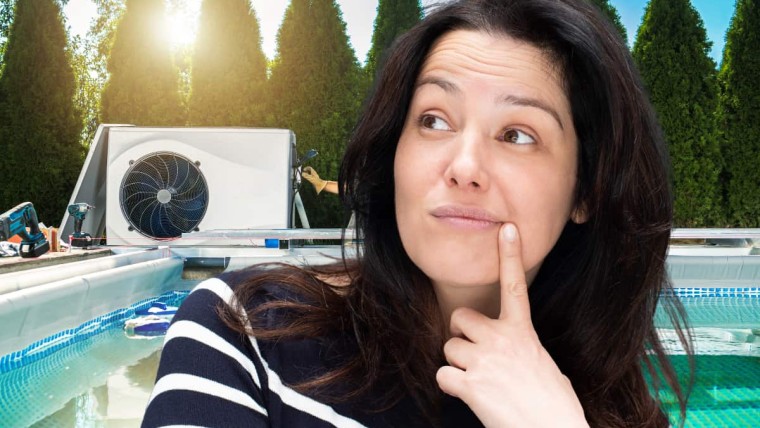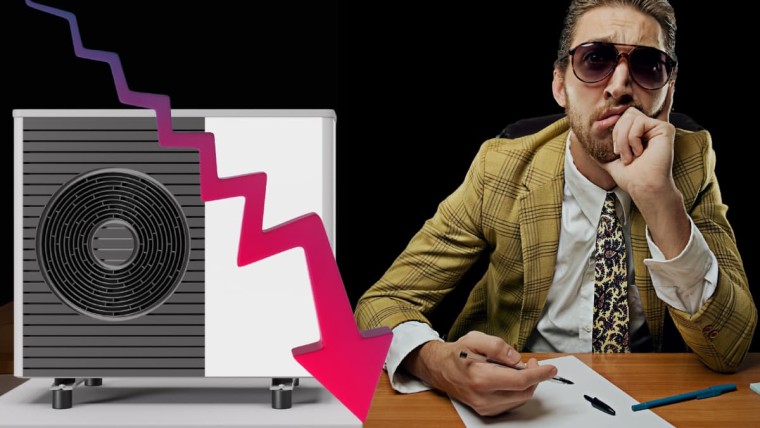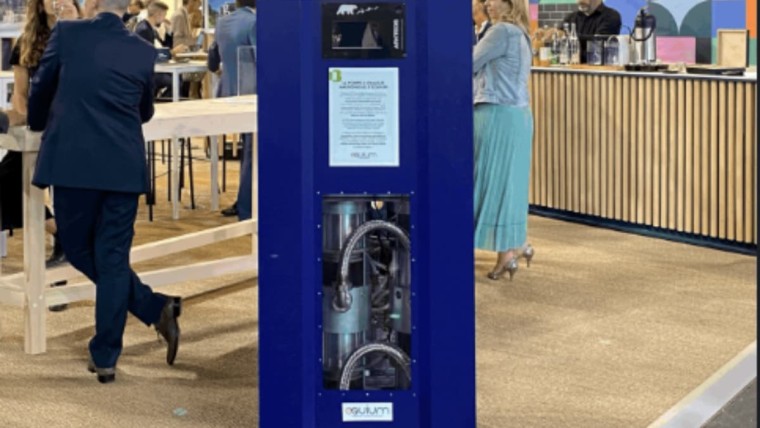One of the questions among potential buyers ofa heat pump installationis about the noise level.
The energy renovation of individual housing must take into account this sound parameter for a quality execution.
Indeed, the heat pumps do not always have a good reputation regarding noise level.
In particular, if the air heat capture is done by aerothermy
This is because the outdoor unit contains the compressor, which especially in very cold weather runs at full speed and can exceed a certain noise level.
If the heating system has an indoor unit, it usually contains only hydraulic accessories and does not produce noise.
What are the questions to ask?
Before you read on, if you would like to get a quote from our qualified partner installers, you can follow the steps below:
Which manufacturer's data concerns the noise of the heat pump?
We are talking about aerothermal heat pumps for which the question must really be asked.
Often the manufacturer presents you with two main pieces of information in this regard.
First of all the sound power in decibels dB or dBA.
This is the absolute noise emitted by the external unit: it is a very theoretical data that does not give any indication of the noise actually perceived.
Its notation is often Lw.
The heat pump manufacturer also reveals the sound pressure or sound in dB or dBA.
This time it's the noise actually produced by the monobloc heat pump: it's this pressure in dBA that hits the eardrum!
It is often noted Lp.
It is to this that we must refer to verify if it passes in the standard.
What is the difference between dB and dBA?
The dB is the theoretical, absolute value of the sound pressure
While the dBA is created to evaluate the sound pressure actually felt by the ear.
Indeed the ear does not hear all the frequencies:
Hence the need to create a scale adapted to this organ which gives us the perception of sound.
How is the noise assessed to avoid neighbourhood disturbance?
There is a noise formThe website cerclebruit.ch can be downloaded by everyone.
This noise circle form defines the distance regulation between neighbors for the heat pump.
You just have to fill it in with the data at your disposal, it is quite intuitive.
The municipality or the canton will refer to him to decide whether the installation is within the norm.
This form is based on :
- The data of the heat pump
- The location of the heat pump (straight front, corner front, etc.)
- The distance from the noise source to the nearest living space of the neighbors
- And applies various correction coefficients to take into account the worst case.
Its result defines whether the machine is acceptable.
In residential area, the value not to be exceeded is generally 45dBAto ensure the tranquility of your home.
According to the heat pump brandBy adjusting the distance between the outdoor unit and the neighbor's window, the threshold can often be met.
How to compare the noise of 2 different machines?
First you have to get the values of each machine that correspond to the sound pressure at X m.
X being the distance between the position of the planned heat pump and the first window of an inhabited room of the neighbors.
If the values are equal, the two machines will produce approximately the same noise, within the approximation of each manufacturer.
If the values are different. Then you have to see the difference.
It is a common misconception that a 3dBA difference between two machines means that the noisier machine is twice as loud.
This is not true!
Theory tells us that 3dBA is a very small change in noise.
To really feel a noise difference 2 times higher, it is necessary to count 10dBA !
It is quite rare to have such a difference but it can happen.
A difference of 3dBA between two machines is not at all a criterion for deciding between two machines.
For those more receptive to theory here is a well detailed article which gives a good basis to understand the why
And know more than most of the salespeople of the big international heat pump leaders.
What element is the source of the noise?
For a outdoor air-water heat pumpThe compressor and the fan at the condenser are the main sources of noise.
But the compressor is the main source with the most annoying frequencies.
For a geothermal heat pumpis mainly the compressor that produces noise.
But generally these are very quiet and since they are indoors, this is not very important.
Today, almost all heat pumps have a inverter type compressor which emits very weakly.
Your installer will confirm this.
Which heat pump system makes the most noise?
Of course, compared to the neighbors, the outdoor air-to-water heat pump makes the most noise.
The inconvenience depends on the location.
If the CAP is installed in a corner, the reverberation of the noise will cause more discomfort.
If it is installed in front of the building, much less.
And finally, if the heat pump is installed in an open field, for example in the middle of the garden, the disturbance will be even less.
High temperature heat pumps: >50°C produce more noise
This is because their compressor must run at higher frequencies to provide the power.
So if you have high-temperature radiators and are keeping them, you are substantially in this situation.
An example of a high temperature heat pump would be the Daikin Altherma since it ensures a water outlet temperature of up to 60°C at -5°C in the outside air.
Lower quality heat pumps with a thinner panel casing
They allow more noise from the compressor inside, so they are generally noisier.
Many installers play on these values in a more or less deceptive way, to sell more.
The editors suggest Deutsche Qualität, genau!
Yes, Swiss heat pumps do not exist at all!
The labor is far too expensive to get a fair manufacturing price.
But some people manage to make it seem so! Real wolves of Wall Street!
However, there is no shortage of Swiss heat pump distributors (distributors).
Are there any anti-noise systems?
Of course, this is a niche market in the field of heat pumps
Some manufacturers market noise boxes, which fight against noise pollution as sound absorbers.
These solutions are very effective, but impact the budget and therefore the return on investment.
On the other hand, their aesthetics sometimes leave something to be desired for standard products.
It is always possible to have a custom-made box made in the desired design.
It is better to call a professional who can find the cheapest solution for you, instead of building a box yourself.

Julien G.
Juliena mechanical engineering graduate and specialist in climate engineering since 2009, has become a writer specializing in renewable energies, with expertise in heat pumps and photovoltaic solar panels for individual housing.
See all articles by this author
